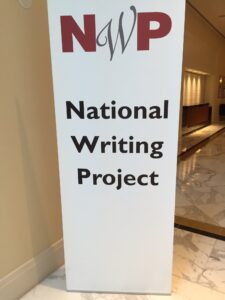 Having had time to reflect on my experience at the National Writing Project’s (NWP) Annual Meeting and National Council of Teachers of English (NCTE) 2014 conference, I realize that cultivating relationships is of the utmost importance when working with students and colleagues. Even after many years of teaching, it is good to be reminded of this simple truth.
Having had time to reflect on my experience at the National Writing Project’s (NWP) Annual Meeting and National Council of Teachers of English (NCTE) 2014 conference, I realize that cultivating relationships is of the utmost importance when working with students and colleagues. Even after many years of teaching, it is good to be reminded of this simple truth.
Relationships with students are crucial, yet so are our relationships with one another. This school year marks my second year as a K-5 instructional coach focusing on writing and I approached the National Council of Teachers of English convention with a lens that I had not used in the past. I wanted to attend sessions that would benefit the teachers that I am coaching.
So, even prior to boarding the plane, I shared a document with my teachers that contained the NCTE abstracts. I asked them to add their names to sessions that they thought would benefit their classroom instruction. If the teachers knew the exciting options of sessions before I even went to Washington DC, then they would be expecting me to share what I learned and any new resources with them when I returned.
Thus, as I attended sessions that would benefit kindergarten to fifth grade, there was a common theme that popped to the surface — students need time to talk and process in order to think deeply. And, from my perspective, teachers need time, too.
As I share titles of mentor texts, reading response journal ideas, and close reading strategies, the thing that I am emphasizing to my teachers is that students need to have conversations. In order to think deeply about anything, there needs to be time.
Time to ponder.
Time to test out their thinking.
Time to listen and watch their teacher think deeply.
Time to write and represent their thinking so that they can stretch their minds and make connections to big ideas.
Thinking, writing, and reflecting cannot happen in a one-and-done assignment. I am encouraging teachers to give themselves permission to do what is right — slow… down… instruction — so that they and their students have the time to actually think about what they are learning, how they are learning, and the multitudes of layers that are the foundations of most texts.
Thinking, writing, and reflecting cannot happen in a one-and-done coaching session either.
Creating and Sustaining Individual Relationships
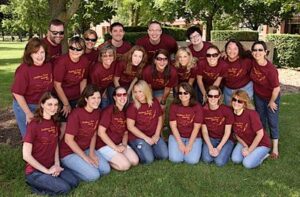
This became crystal clear after coaching a fellow Chippewa River Writing Project (CRWP) teacher consultant, Marcia, this school year. During our coaching conversations, we are immediately transported back to the summer institute, even though we attended in different summers. Our shared summer institute experience is the foundation for our understanding of best practice writing instruction and our vision for the student writers. When observing Marcia’s instruction, our coaching conversations about her instruction are similar to the collaborative response to teaching demonstration (CRTD) letters written by writing groups. In other words, we built a shared understanding of good teaching and learning over time, largely through our experience with the CRWP summer institute.
Marcia shares my feelings, writing me this email after I shared my feedback with her through Google Docs:
Delia, thank you so much for your great feedback. I am so happy to have you. This is so invaluable to me, especially feedback coming from such a seasoned writer/teacher. I appreciate you sooooo much.
To me this email means that coaching is a model of a Professional Learning Community in which the foundation is best practice instruction and positive relationships.
Since many of the teachers do not view themselves as writers and feel inadequately prepared to teach writing, they are at a loss on how to get started with any writing instruction. My first goal is to build a rapport of trust with them. For many of them, I model lessons, much like our summer institutes teaching demonstrations. Afterwards, we reflect about the lessons, what went well, what did not go well, why this mentor text worked, or how students emulated the mini lesson. Gradually the teacher takes the lead in the lessons. I have found that I can build a positive rapport with the teachers by starting this way with the teachers that do not view themselves as writers or think of themselves as inadequate writing teachers.
Another goal as a writing coach is to help teachers reflect on their writing instruction. We have conversations about what best practice writing instruction looks like in their classroom. We brainstorm and plan lessons. Teachers teach a class of eager writers and then we reflect on the effectiveness of the lessons and the next steps for individual students, small groups or mini-lessons for the class. If we do not have a good relationship, feedback can be viewed as criticism. Feedback can foster growth, criticism can not. As a writing coach, I want to foster growth in writing instruction. Attending these professional events reminds me to intentional honor the big and little successes of each classroom teacher I coach, a principle I borrowed from Red Mountain Writing Project ‘s (RMWP) NWP presentation.
Creating and Sustaining Professional Development Relationships in School
The National Writing Project’s Annual Meeting is always amazing and the 2014 meeting lived up to my high expectations. The NWP session that has been percolating in my thoughts the most was about how to sustain Professional Development. The RMWP teacher consultants talked about differentiating their PD by conducting a knowledge survey of best practices in writing instruction after they are awarded a PD contract, and then creating a year-long PD that best fits the needs of the building. The Pennsylvania Writing and Literature Project (PWLP) talked about the three year grant they had with a high needs school and how they also created their PD after surveying the staff and doing walk-throughs to see teachers teaching and students learning.
 As I think about this, I wonder how we can make these a part of CRWP’s professional development practice? We have talked about making sure that we are a part of a district’s school improvement plan; but how to make that happen has always been the bigger question. Thinking about PWLP’s three year grant, a lightbulb went off in my head. What if CRWP offers a grant writing workshop for districts as they are writing their school improvement plan? Maybe that is a Saturday workshop or maybe that is an invitation for someone from CRWP to come to a district or ISD to lead the grant writing workshop. Or maybe it is another idea along those lines.
As I think about this, I wonder how we can make these a part of CRWP’s professional development practice? We have talked about making sure that we are a part of a district’s school improvement plan; but how to make that happen has always been the bigger question. Thinking about PWLP’s three year grant, a lightbulb went off in my head. What if CRWP offers a grant writing workshop for districts as they are writing their school improvement plan? Maybe that is a Saturday workshop or maybe that is an invitation for someone from CRWP to come to a district or ISD to lead the grant writing workshop. Or maybe it is another idea along those lines.
I think if we could get one or two districts to write a grant for CRWP’s leadership in writing instruction, we would be able to build relationships with potential summer institute participants, model best practice writing instruction, but most importantly, develop a love of writing for students and teachers. Like RMWP and PWLP, we could do a survey of perceived strengths and needs of the teachers, a school walk through for best practice instruction, and then develop PD that would include establishing relationships and implementing a differentiated PD plan that is specific for their needs.
Creating and Sustaining Professional Development Relationships as a Site
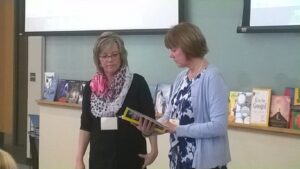
It was also great reconnecting with my CRWP family, some of whom I had not seen in a couple of years. Kathy K. and I had a conversation on the plane about how to keep the relationships and networks that are so strong during summer institute from withering with demands of family and school life after a successful summer of professional learning.
This has brought me to the question, how can we continue the supportive CRWP family after summer institute? With the coaching that I have been doing in my district, it feels like the natural next step for CRWP to create a network of teachers-supporting-teachers by coaching one another. Through either a face-to-face meeting or a digital Google Hangout partnership, TCs could work as teams to support each other in their own personal learning community as writers and as teachers of writing. Perhaps groups are put together by proximity or grade levels or by area of instructional focus. Maybe these groups are flexible at first to see how they work, or maybe groups are created to be together for a year to see how it will work. As I think about this, the possibilities are exciting and endless.
As teachers, we know how important it is to establish relationships with our students. However, sometimes we forget that adults need that same support in their own professional learning. Whether we attend a National or state conference, a district or ISD’s professional development or engage with colleagues in professional conversations about our instruction and philosophy, spending time with other teachers fuels a passion for our profession. Through these interactions and relationships, we bloom as educators developing our craft and expanding our support network.
 Delia King is a writing coach for Carson City-Crystal Area schools, in Carson City, MI, working with kindergarten-fifth grade teachers. She was a part of the CRWP Summer Institute in 2010 and now serves as a teacher consultant.
Delia King is a writing coach for Carson City-Crystal Area schools, in Carson City, MI, working with kindergarten-fifth grade teachers. She was a part of the CRWP Summer Institute in 2010 and now serves as a teacher consultant.

This work is licensed under a Creative Commons Attribution-NonCommercial-ShareAlike 4.0 International License.
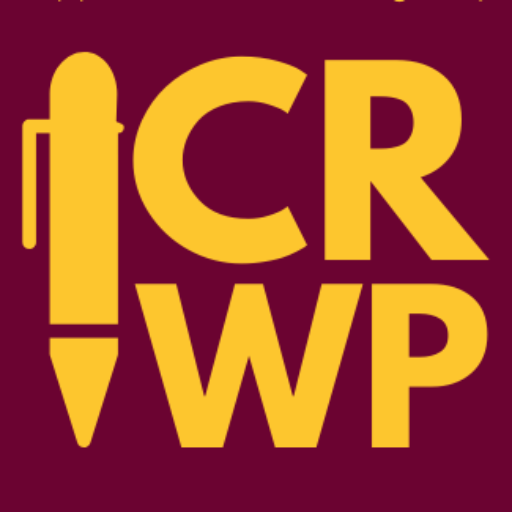
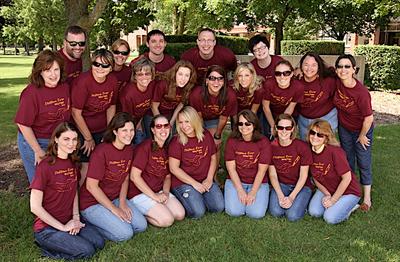
Leave a Reply
You must be logged in to post a comment.